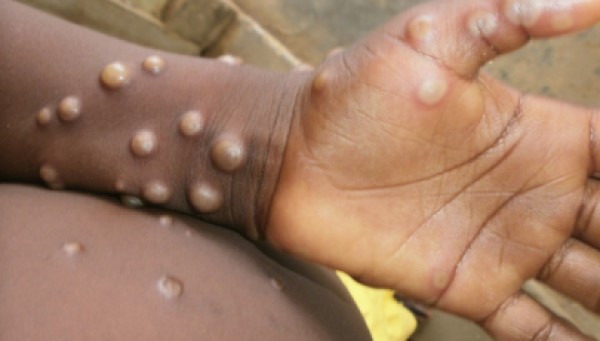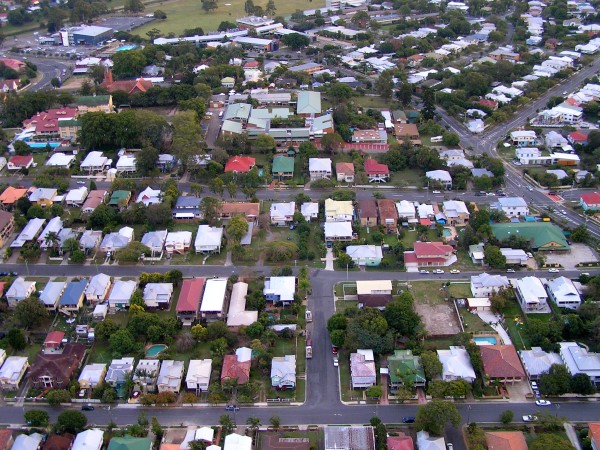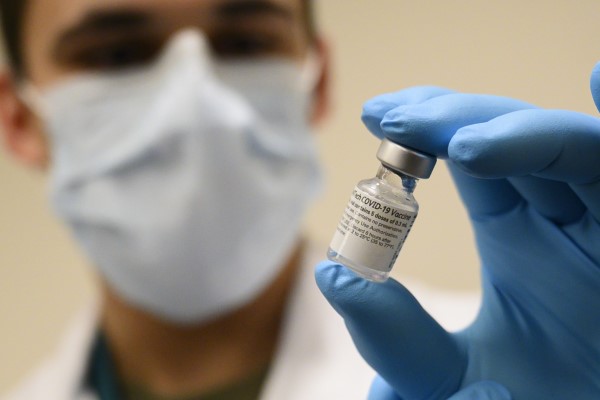Selected
- Details
- Written by Grant Broadcasters
- Category: Selected
- Hits: 256

The World Health Organisation said the expanding monkeypox outbreak in more than 70 countries is an "extraordinary" situation that qualifies as a global emergency.
The WHO's declaration on Saturday could spur further investment in treating the once-rare disease and worsen the scramble for scarce vaccines.
WHO director-general Tedros Adhanom Ghebreyesus made the decision to issue the declaration despite a lack of consensus among members of the WHO's emergency committee.
It was the first time the chief of the United Nations health agency has taken such an action.
"In short, we have an outbreak that has spread around the world rapidly through new modes of transmission about which we understand too little and which meets the criteria in the international health regulations," Tedros said.
"I know this has not been an easy or straightforward process and that there are divergent views among the members" of the committee, he added.
Although monkeypox has been established in parts of central and west Africa for decades, it was not known to spark large outbreaks beyond the continent or to spread widely among people until May, when authorities detected dozens of epidemics in Europe, North America and elsewhere.
Declaring a global emergency means the monkeypox outbreak is an "extraordinary event" that could spill over into more countries and requires a coordinated global response.
The WHO previously declared emergencies for public health crises such as the COVID-19 pandemic, the 2014 West African Ebola outbreak, the Zika virus in Latin America in 2016 and the ongoing effort to eradicate polio.
The emergency declaration mostly serves as a plea to draw more global resources and attention to an outbreak.
Past announcements had mixed impact, given that the UN health agency is largely powerless in getting countries to act.
Last month, the WHO's expert committee said the worldwide monkeypox outbreak did not yet amount to an international emergency but the panel convened this week to re-evaluate the situation.
According to the US Centers for Disease Control and Prevention, more than 16,000 cases of monkeypox have been reported in 74 countries since about May.
To date, monkeypox deaths have only been reported in Africa, where a more dangerous version of the virus is spreading, mainly in Nigeria and the Democratic Republic of Congo.
In Africa, monkeypox mainly spreads to people from infected wild animals like rodents, in limited outbreaks that typically have not crossed borders.
In Europe, North America and elsewhere, however, monkeypox is spreading among people with no links to animals or recent travel to Africa.
As of July 19, Australia had reported 41 confirmed or probable cases of monkeypox, with the majority in NSW (22) and Victoria (15).
The WHO's top monkeypox expert, Dr Rosamund Lewis, said this week that 99 per cent of all the monkeypox cases beyond Africa were in men and that of those, 98 per cent involved men who have sex with men.
Experts suspect the monkeypox outbreaks in Europe and North America were spread via sex at two raves in Belgium and Spain.
Michael Head, a senior research fellow in global health at Southampton University, said it was surprising the WHO had not already declared monkeypox a global emergency, explaining that the conditions were arguably met weeks ago.
Some experts have questioned whether such a declaration would help, arguing the disease isn't severe enough to warrant the attention and that rich countries battling monkeypox already have the funds to do so; most people recover without needing medical attention, although the lesions may be painful.
"I think it would be better to be proactive and overreact to the problem instead of waiting to react when it's too late," Head said.
Image: World Health Organisation
- Details
- Written by Grant Broadcasters
- Category: Selected
- Hits: 251

Two in five properties around Australia are worth less than they were three months ago - a sign the pandemic property boom has well and truly drawn to a close.
But with interest rates set to be hiked again in August, those wanting to take advantage of lower house prices would be advised to act fast, says Aus Property Professionals founder and buyer's agent Lloyd Edge.
"No one ever got anywhere ... sitting on the fence waiting to see what happens in six months time. People often miss the boat," Mr Edge told AAP.
"If people have their pre-approval at the moment I think they should go ahead and jump in and get something, because ... it's going to be affected again in a couple of months' time."
According to property data analysts CoreLogic, the downturn in the market is gathering momentum on the back of consecutive central bank interest rate hikes, rising inflation and weaker consumer confidence.
Nearly 42 per cent of houses and units across Australia declined in value in the second quarter, compared with about 24 per cent in the first, its data shows.
"This analysis captures two of the three recent rate hikes so it's not surprising to see the added downward pressure has had a broader impact on the housing market," CoreLogic economist Kaytlin Ezzy said
"Signs of a slowdown and falls in value were already evident before the rate rises (began in May), but are now becoming more widespread across Sydney and Melbourne, and beginning to impact the more expensive areas of Brisbane, Canberra and Hobart."
The CoreLogic data suggest property prices have declined by 0.2 per cent nationally, but in Sydney house prices have fallen by three per cent, while unit prices have dropped by 2.1 per cent.
This might have been great news for first-time home buyers looking to take advantage of a lower-priced entry into the market.
Still, with anticipated high inflation data to be released on July 27 likely to prompt the Reserve Bank of Australia to jack up interest rates again at its next meeting in August, the benefits may not be fully realised.
The fall in property values may be a bitter pill to swallow for some who recently bought their first properties - especially given recent statistics gathered by comparison site Finder show that more than a third exceeded their budgets.
A survey of 1001 first home buyers - 372 of whom had already purchased - found eight per cent of buyers paid between $50,000 and $100,000 more than they had planned to, while another eight per cent blew their budget to the tune of more than $100,000.
Irrespective of any downturn in the market, capital cities like Sydney and Melbourne are still very expensive to buy into - often prohibitively so.
CoreLogic found that in three out of four Sydney suburbs median house values remained over $1 million, with no houses listed for under $500,000.
Mr Edge says he has seen an increase in "rentvesting" - where people rent where they want to live and purchase a property in the more affordable regional markets to get on the property ladder.
"Having that home and that great Australian dream is not necessarily for everybody at the moment," he says.
© AAP 2022
Image: Cyron Ray Macey from Brisbane (-27.470963,153.026505), Australia, CC BY 2.0 <https://creativecommons.org/licenses/by/2.0>, via Wikimedia Commons
- Details
- Written by Grant Broadcasters
- Category: Selected
- Hits: 262

COVID-19 vaccines may have saved millions of lives but they have not decisively reduced the spread of the virus, the World Health Organisation says.
The organisation therefore called on researchers to develop new vaccines that reduce infections - otherwise, there is still a risk that virus variants will develop against which the vaccines are less effective.
Vaccines that are easier to administer than before, such as nasal sprays, are also needed, the WHO said.
"Even where 70 per cent vaccination coverage is achieved, if significant numbers of health workers, older people and other at-risk groups remain unvaccinated, deaths will continue, health systems will remain under pressure and the global recovery will be at risk," WHO director-general Dr Tedros Adhanom Ghebreyesus said.
"Accumulated evidence indicates that existing vaccines provide only modest and relatively limited duration of protection against (COVID-19) infection," a WHO report stated.
The WHO also updated its vaccination targets.
It now aims to double-vaccinate 100 per cent of health-care workers, people over 60 years of age and people who are particularly at risk due to pre-existing conditions in every country worldwide.
The previous target of vaccinating 70 per cent of all people in all countries by the middle of the year was missed.
By the end of June, only 58 countries had achieved this.
According to a study by Imperial College London published in The Lancet in June, almost 20 million lives have been saved by coronavirus vaccinations.
In poorer countries, however, only 28 per cent of the elderly and 37 per cent of health workers have been vaccinated.
© DPA 2022
Image: U.S. Secretary of Defense, CC BY 2.0 <https://creativecommons.org/licenses/by/2.0>, via Wikimedia Commons
- Details
- Written by Grant Broadcasters
- Category: Selected
- Hits: 207

Ben Hunt has declared St George Illawarra are a united team after helping breathe life back into their season with a crucial 20-6 win over Manly.
Just days after coach Anthony Griffin's future came under the spotlight, Hunt scored two tries to put the Dragons level on wins with eighth spot.
In a virtual four-point game for both teams at Jubilee Oval, Hunt's tries helped the Dragons out to a 14-0 lead at halftime before they held on after the break.
Already ravaged by COVID-19, Manly then lost Ben Trbojevic to concussion, Sean Keppie a shoulder injury and Josh Aloiai a knee cork.
The loss left them outside the top eight, level with the Dragons and needing to win at least three of their last six to have any hope of playing in the finals.
Coach Des Hasler also claimed he would speak to referees' boss Jared Maxwell during the week, unhappy with a 10-4 penalty count that hurt his team in the first half.
But that would have mattered little to the Dragons and Griffin, after a difficult week.
Amid reports that Griffin's future was to be discussed at a board meeting and that there was a rat in the ranks with claims of an unhappy dressing room, Hunt said he did not need to address the group.
"When there is things going on like that, sometimes you get a vibe that there is something going on between the players," Hunt said.
"I didn't feel it at all. It wasn't mentioned. You just get on with the job."
Jack Bird, who deputised at centre and fullback after Cody Ramsey suffered a serious knee injury, also insisted there were no issues in the group.
"We all get along with Hook (Griffin), we all like playing under him and we're a tight bunch," Bird said.
"We've been inconsistent, but I've never seen why teams sack coaches midway through the year.
"We've seen it with the Bulldogs and the Tigers and stuff, I just think it takes a lot away from your game and the concentration side of things.
"I'm happy to play under Hook and I'm happy that he's staying."
Hunt was the star in it all.
He scored the first try of the game when he slipped over in wet conditions close to the line before burrowing through Manly's defence.
The halfback's next try came in more conventional fashion, running onto a brilliant grubberkick from Talatau Amone.
And while Hunt's try-scoring prowess put the Dragons on the road to victory, his kicking and game management was just as vital.
The Dally M leader when votes went behind closed doors last month, Hunt forced four line dropouts off his own boot alone in the wet.
While Hunt was in control for the Dragons, Manly's attack was clunky with lock Jake Trbojevic, hooker Lachlan Croker and second-rower Andrew Davey all out with COVID-19.
Their dangerous right edge was also rendered close to ineffective with Haumole Olakau'atu battling an ankle injury, while a run of penalties left them with little ball early.
"We have been such a disciplined team for the past month," Hasler said.
"It's not a whinge or a complaint. I just don't see how we can warrant a two-to-one penalty count against us at (9-5).
"I don't get it."
© AAP 2022
Image: Dragons Facebook
Page 19 of 191